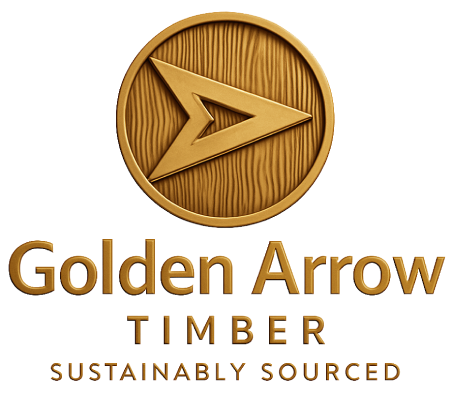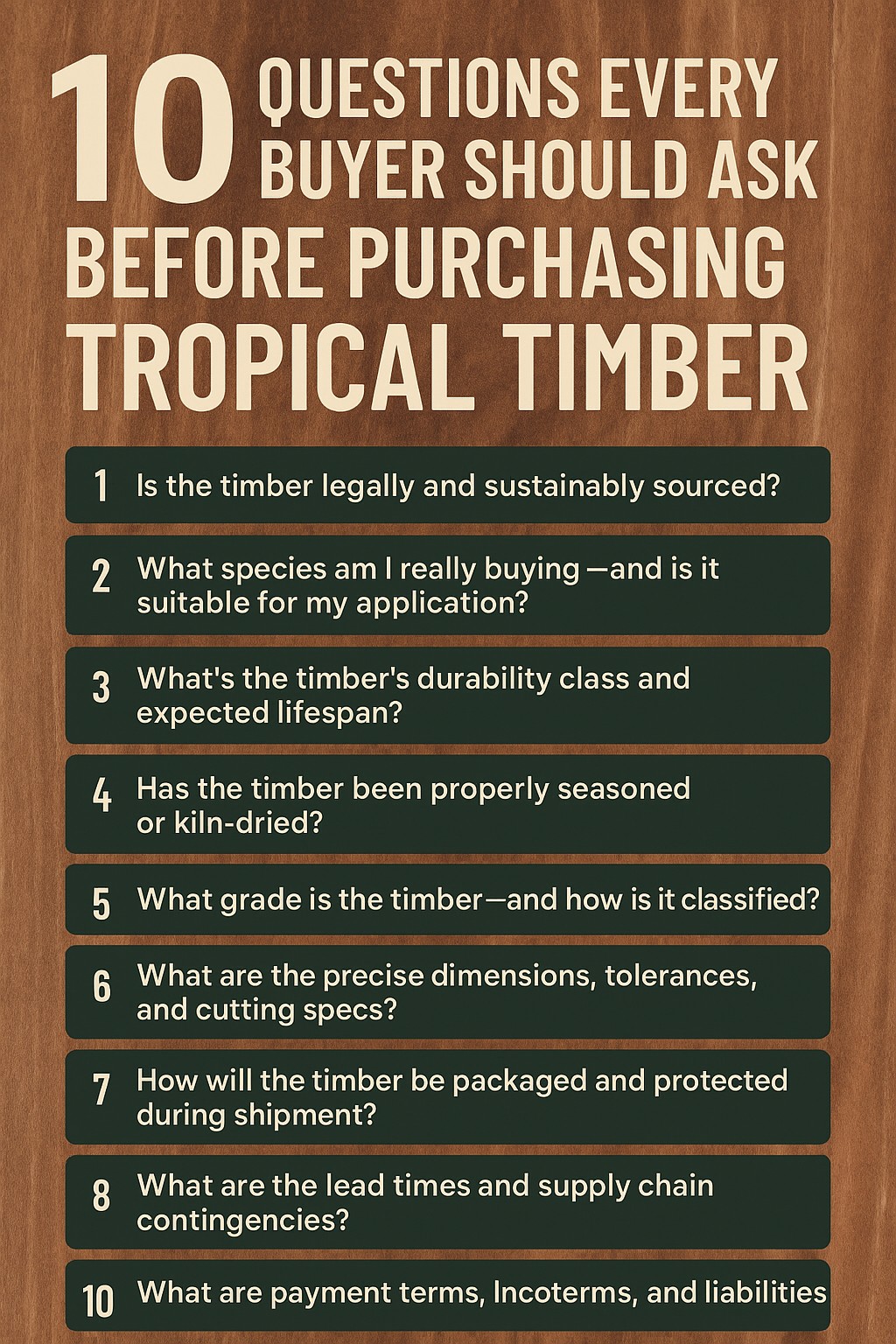10 Critical Questions Every Buyer Should Ask Before Purchasing Tropical Timber
Author: Jason Rhodius | Timber Export Specialist | Sustainable Sourcing Advocate
Introduction:
Tropical timber is in high demand, praised for its strength, durability, and natural beauty. But purchasing it isn’t as simple as picking a species and placing an order. Behind each timber deal lies a complex web of certifications, sustainability standards, technical specs, and supply chain risks.
Whether you’re sourcing timber for a construction project, a marine application, or a design portfolio, asking the right questions upfront can save your company time, money, and reputational damage. In this article, I’ll walk you through 10 essential questions every serious buyer should ask before making that purchase order.
- Is the timber legally and sustainably sourced?
Start here. Ask for proof of origin, cutting permits, and FSC or equivalent verification. Illegal logging and deforestation remain significant concerns. Responsible sourcing isn’t just ethical, it’s a business safeguard.
🔍 Tip: Look for suppliers offering FSC-certified or FSC-verified options, with transparent documentation.
- What species am I buying, and is it suitable for my application?
Not all hardwoods are created equal. Ipe, Greenheart, and Purpleheart each serve different structural, aesthetic, and durability needs. Confirm the botanical name, not just the trade name.
💡 Scenario: A buyer sourced “Greenheart” for marine piling, only to later discover it was a mislabelled softwood blend.
- What’s the timber’s durability class and expected lifespan?
Marine or exterior projects demand timber with high natural durability (Class 1 or 2). Ask for test results or case studies that match your intended use, especially for decking, piling, or bridges.
- Has the timber been properly seasoned or kiln-dried?
Moisture content affects everything from weight and shrinkage to warping and workability. Ask if the timber was air-dried, kiln-dried, or shipped green.
📦 Best practice: For joinery or flooring, kiln-dried timber (8–12% moisture) is the gold standard.
- What grade is the timber, and how is it classified?
Timber grading isn’t universal. Make sure your supplier clearly defines their grading system. Is it visual? Structural? According to British, European, or Caribbean standards?
- What are the precise dimensions, tolerances, and cutting specs?
Get clarity on nominal vs actual sizes. Confirm whether dimensions are rough-sawn, planed, or custom-cut. Tolerances matter, especially for joinery or engineered installs.
- How will the timber be packaged and protected during shipment?
Transport damage is a common cause of loss. Ask about wrapping, strapping, container loading techniques, and protection against moisture, insects, or mechanical impact.
- What are the lead times and supply chain contingencies?
Tropical timber often comes from remote regions. Weather, export regulations, and port delays can affect timelines. Ask how your supplier handles disruptions or back orders.
- What after-sales support or documentation is provided?
Does the supplier provide species datasheets, material safety information, test reports, or installation advice? This becomes especially useful during tenders or architectural approvals.
- What are the payment terms, Incoterms, and liabilities?
Avoid surprises by understanding who owns what and when. Clarify Incoterms (FOB, CIF, DDP, etc.), insurance coverage, and dispute resolution clauses before the deal closes.
Final Thoughts:
Timber is one of the oldest building materials in the world, but the business of buying it has never been more complex. Asking the right questions is more than due diligence, it’s your edge in a competitive, high-stakes market.
If you’re serious about sourcing tropical hardwoods sustainably, profitably, and responsibly, let’s connect. I’m always happy to share insights, make introductions, or answer questions from fellow professionals.
Let’s Discuss:
What other questions do you consider essential when sourcing tropical timber? Drop your thoughts in the comments.
#TropicalTimber #SustainableSourcing #FSC #Greenheart #TimberTrade #ProcurementTips #ConstructionMaterials #MarineTimber #LinkedInArticles #SupplyChainManagement





